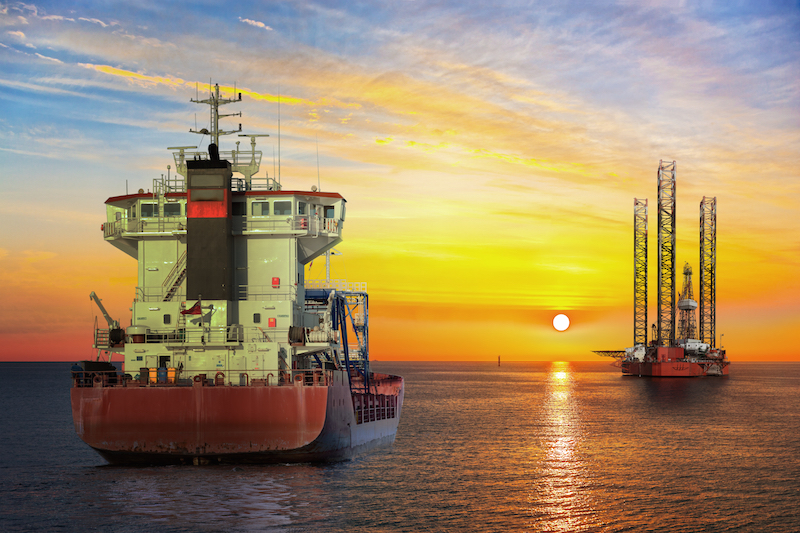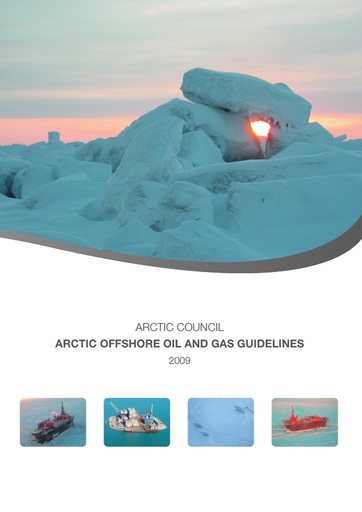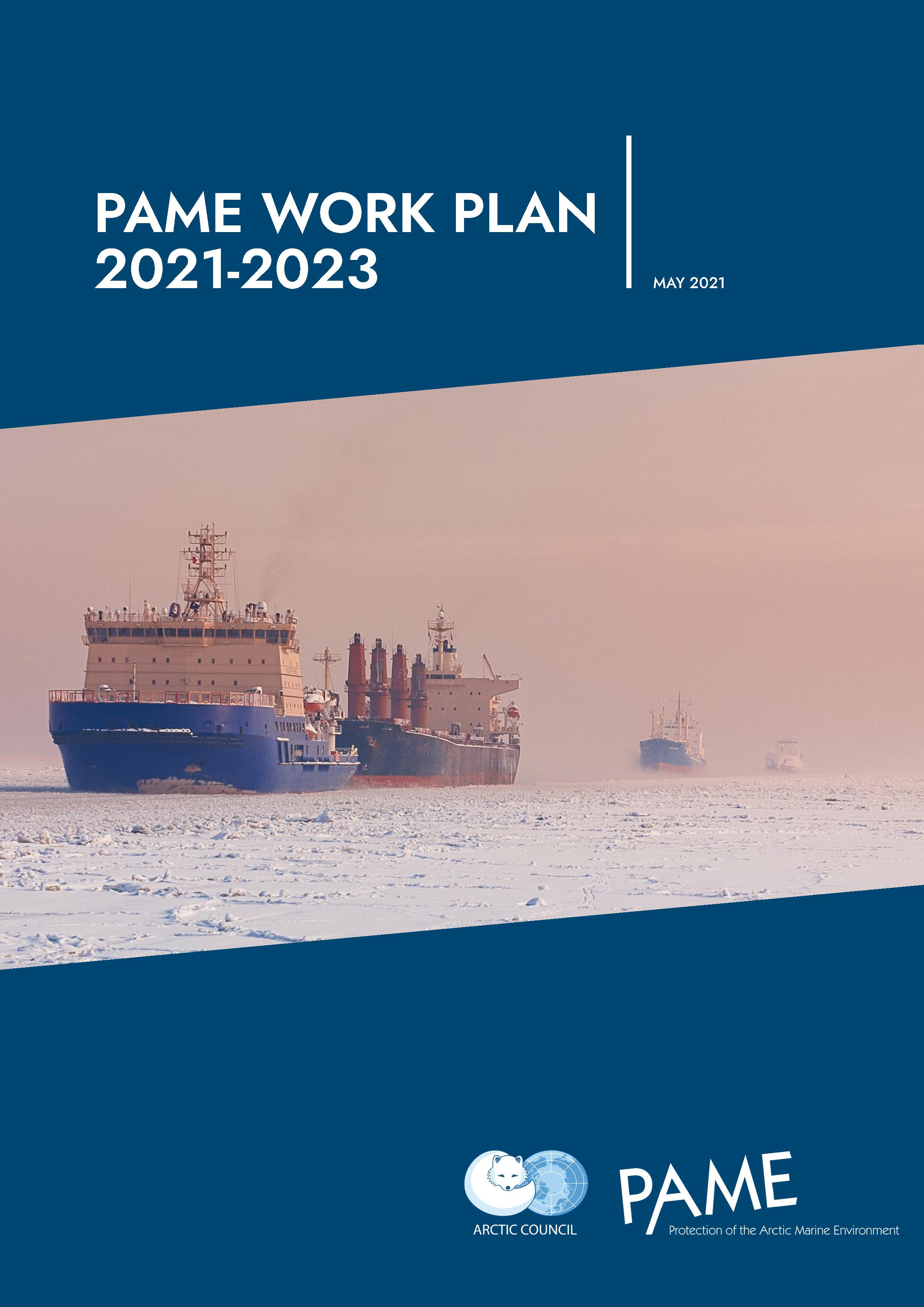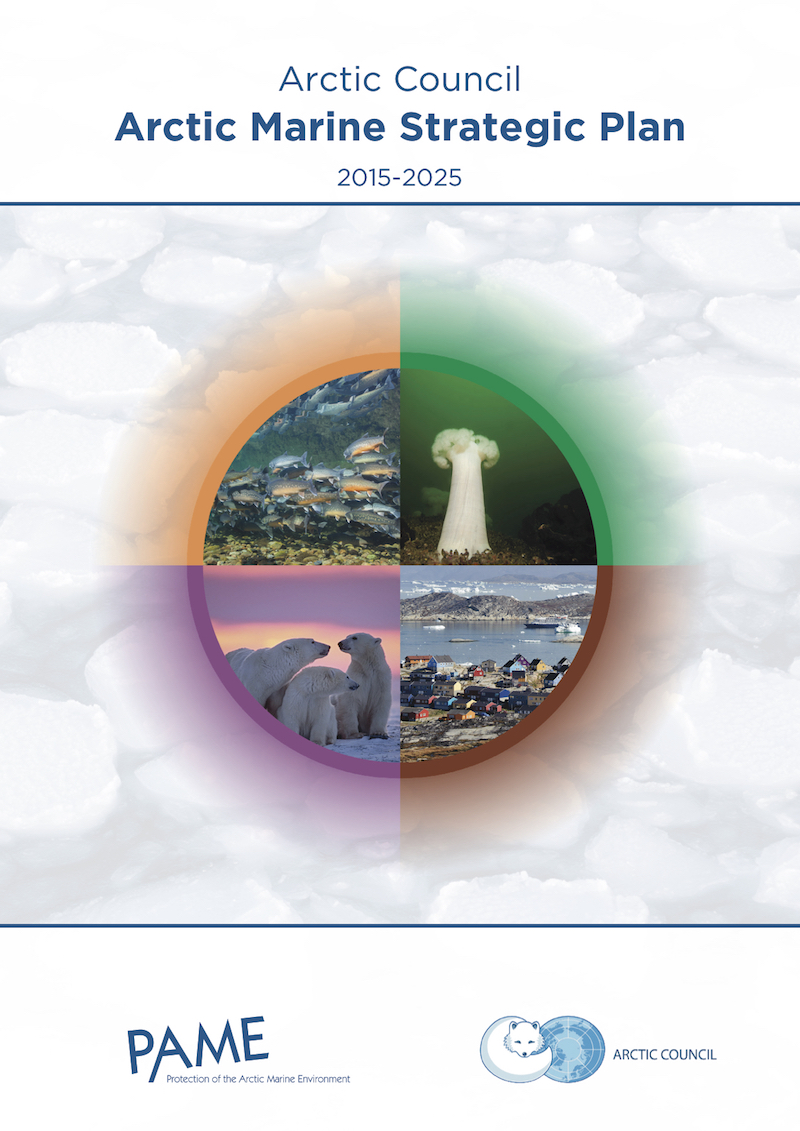Resource Exploration and Development
 PAME released the Arctic Offshore Oil and Gas Guidelines in 2009. The Guidelines are intended to be of use to the Arctic nations for offshore oil and gas activities during planning, exploration, development, production and decommissioning to help secure common policy and practices.
PAME released the Arctic Offshore Oil and Gas Guidelines in 2009. The Guidelines are intended to be of use to the Arctic nations for offshore oil and gas activities during planning, exploration, development, production and decommissioning to help secure common policy and practices.The goal was to assist regulators in developing standards, which are applied and enforced consistently for all offshore Arctic oil and gas operators.
While recognizing the nonbinding nature of these Guidelines, they are intended to encourage the highest standards currently available. They are not intended to prevent States from setting equivalent or stricter standards, where appropriate.
In 2017, PAME broadened its focus to the following topics: Offshore Renewable Energy, Noise in the Marine Environment, Offshore and Coastal Mining and Offshore Oil and Gas.
Click here to read more about PAME's work on Resource exploration and development.
Categories
Arctic Offshore Oil and Gas Guidelines
 The Arctic Offshore Oil and Gas Guidelines was originally written in response to the third Ministerial Conference on the Protection of the Arctic Environment (1996) which expressed concern regarding the potential impacts related to future increases in offshore petroleum activity in the Arctic.
The Arctic Offshore Oil and Gas Guidelines was originally written in response to the third Ministerial Conference on the Protection of the Arctic Environment (1996) which expressed concern regarding the potential impacts related to future increases in offshore petroleum activity in the Arctic.It requested PAME ...(to develop) “guidelines for offshore petroleum activities in the Arctic, in particular guidelines for timely and effective measures for protection of the Arctic environment. In this regard, the Ministers welcomed the initiative of the United States to conduct a government designated expert meeting to develop such guidelines, in cooperation, as appropriate, with other Working Groups”.
The Guidelines were releasrd in 1997, updated in 2002 and in 2009.
The Guidelines are intended to be of use to the Arctic nations for offshore oil and gas activities during planning, exploration, development, production and decommissioning.
Meaningful Engagement of Indigenous Peoples and Local Communities in Marine Activities (MEMA)
Meaningful Engagement of Indigenous Peoples and Local Communities in Marine Activities (MEMA) is a cross-cutting oil & gas and shipping project which will compile and analyze existing documents and summarize their main aspects, principles, and processes for engagement of indigenous peoples and local communities.
The project will cover all Arctic marine and coastal activities, including shipping, offshore oil and gas activities, coastal infrastructure development, and research and management activities. The information to be compiled will come from Arctic Council documents and reports, national legal regimes and guidance of Arctic states, guidelines and declarations from communities and indigenous organizations, international instruments, and guidance from industry, NGO’s and other stakeholders.
Main activities include:
The project will cover all Arctic marine and coastal activities, including shipping, offshore oil and gas activities, coastal infrastructure development, and research and management activities. The information to be compiled will come from Arctic Council documents and reports, national legal regimes and guidance of Arctic states, guidelines and declarations from communities and indigenous organizations, international instruments, and guidance from industry, NGO’s and other stakeholders.
Main activities include:
- Finding and Compiling Information
- Documenting Best Practices and Lessons Learned
- Workshop on Best Practices and Lessons Learned
- Narrative Report
Systems Safety Management and Safety Culture
This guidance document was intended to enhance and supplement the 2009 Arctic Council’s Arctic Offshore Oil and Gas Guidelines (AOOGG), by focusing on providing tools and approaches for reducing the threat of catastrophic effects of major oil and gas related accidents, such as the 2010 Deepwater Horizon disaster.
Its purpose is to provide more targeted guidance on protecting the marine environment from major accidents by improving safety management systems and safety culture in Arctic offshore petroleum operations. PAME drew on investigations and recommendations from the Deepwater Horizon accident as well as numerous other investigations and hearings.
The PAME Working Group also benefited from discussions and recommendations from two specific workshops involving international experts from governments, various industries, academia, indigenous peoples organizations, and other Arctic stakeholders.
The report examines the importance of the over-arching issues of Coordination among Regulators and Safety Culture and focuses on some key issues and challenges, as well as some recommended actions or approaches that regulators should pursue for improving system safety when regulating or influencing the safety of offshore oil and gas operations in the Arctic for the following nine (9) Safety Management categories:
Its purpose is to provide more targeted guidance on protecting the marine environment from major accidents by improving safety management systems and safety culture in Arctic offshore petroleum operations. PAME drew on investigations and recommendations from the Deepwater Horizon accident as well as numerous other investigations and hearings.
The PAME Working Group also benefited from discussions and recommendations from two specific workshops involving international experts from governments, various industries, academia, indigenous peoples organizations, and other Arctic stakeholders.
The report examines the importance of the over-arching issues of Coordination among Regulators and Safety Culture and focuses on some key issues and challenges, as well as some recommended actions or approaches that regulators should pursue for improving system safety when regulating or influencing the safety of offshore oil and gas operations in the Arctic for the following nine (9) Safety Management categories:
|





